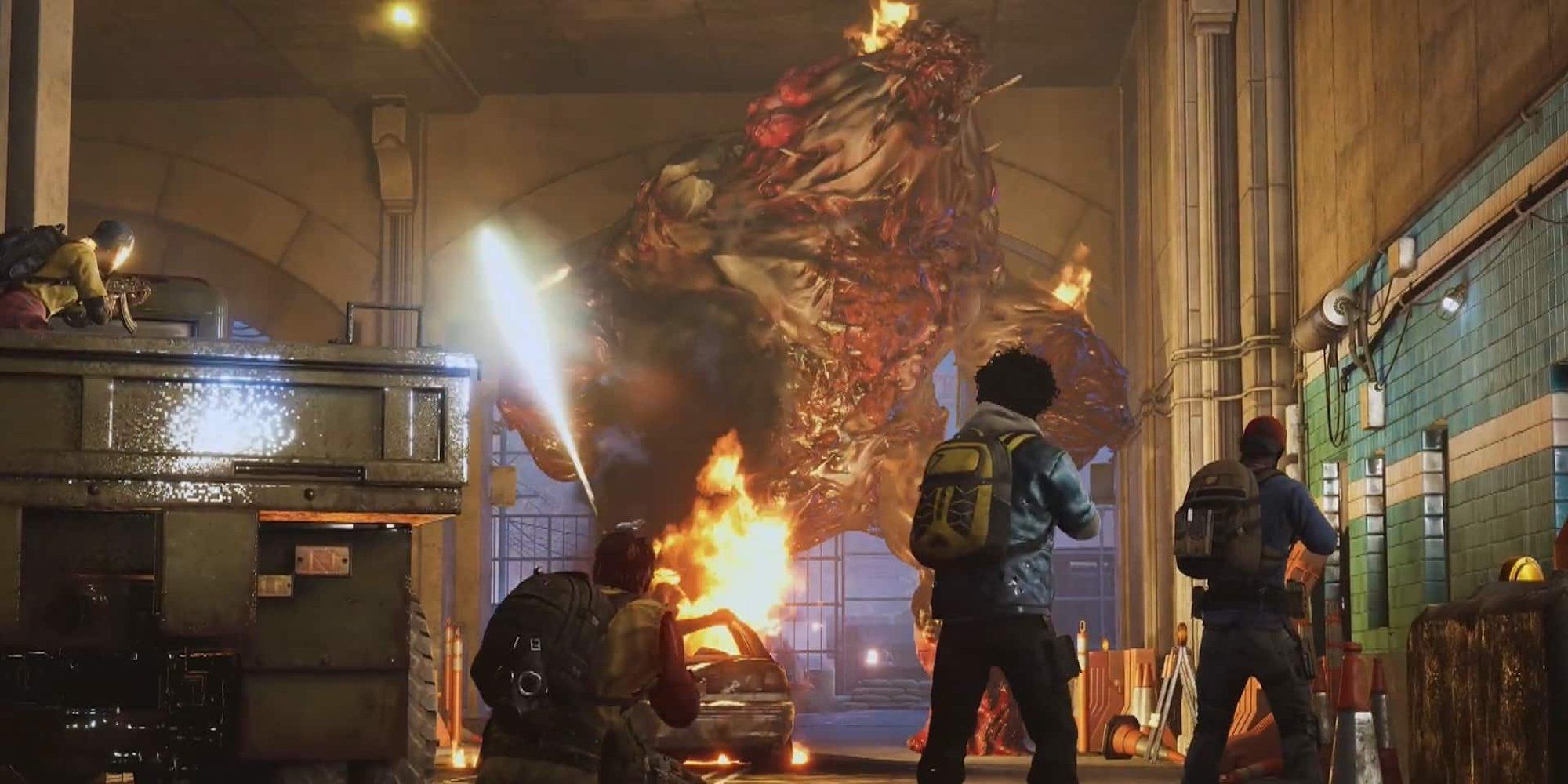As players progress in Back 4 Blood and begin to take on harder difficulties like Veteran and Nightmare, there are some basic unspoken rules and common courtesies that can help players avoid griefing (or becoming griefers) in co-op play. Performing higher difficulty runs in Back 4 Blood requires a considerable amount of team coordination, cooperation, and patience. No squad has any room for a disgruntled player, and many simple steps can be taken to assure that a team never reaches that point with any of its Cleaners in Back 4 Blood.
On Nightmare difficulty, infractions like alerting a Sleeper are no longer just an "oopsie" like they are on Recruit and Veteran. Sleepers summon Hordes, and even experienced players sometimes forget that Sleepers can appear on any wall at any time. Actions like this can be potential run-enders on Nightmare, so it's important that all players are on the same page in terms of map awareness and strategy.
Unspoken rules and common courtesies can go a long way in stressful team-based games like Back 4 Blood. Players sometimes lose sight of the ultimate end goal of the success of the team, but trust between teammates is essential, and playing as selflessly as possible can help to cultivate that bond when taking on Back 4 Blood's powerful Ridden zombies.
Prioritize Teammates Needs In Back 4 Blood Co-Op To Avoid Griefing
One common courtesy that can instantly build trust and avoid potential griefing is refraining from immediately picking up items dropped by another player. Players often drop weapon attachments while making adjustments, as Back 4 Blood's inventory management system isn't designed to allow players to quickly switch attachments. The same rule goes for medkits, which are often temporarily dropped so bandages or pain meds can be used. Many players assume these items are simply up for grabs and take them when their teammates are still using them, causing unnecessary friction.
Another common courtesy is ammo sharing. During Back 4 Blood's hardest missions, every Cleaner will encounter an ammo problem eventually. Players can minimize this issue by constantly dropping and pinging ammo. When looting ammo crates, players should only grab one box of the respective ammo they're using unless it's clear that everyone else is full up. With rifle ammo being the most popular type, required to run LMGs, most players are constantly looking to pick up a stack.
Communication & Selflessness Are Key To Courtesy In Back 4 Blood Co-Op
Most players seem to prefer to not communicate via voice chat, but communication is important. If players aren't going to use a mic to make necessary callouts, then they must be attentive to their teammate's pings (and mindful of pinging relevant information themselves). Players should ping anything and everything deemed important, like first aid cabinets, birds, alarms, and mutations.
It's also important to pay attention to exactly where the group is. Players shouldn't lag too far behind, but it's especially crucial to not push too far ahead. Running solo into either powerful mutations or common Ridden will only bring down the team. Additionally, players should communicate if they are unable to heal any trauma damage sustained in a Back 4 Blood run. The game is built around the concept of four players working together, and one lone wolf can easily derail a Nightmare or Veteran playthrough.
On higher difficulties, players should also pay close attention to their outgoing fire. The friendly fire penalty in Back 4 Blood becomes more severe with each increase in difficulty (up to 60% on Nightmare), and there's nothing worse than getting hammered by a teammate's LMG. Avoid swinging melee weapons into large groups, as players are bound to accidentally bash their own teammates on occasion.
Players shouldn't hesitate to purchase upgrades that benefit the entire team. If players are not able to call out how much money they can contribute while in the safe room, it's best to just drop a pile of copper and ping it. Small contributions like this are always appreciated. Also, players should resist the urge to rush to medical cabinets to heal in Back 4 Blood given the limited number of charges, saving them for teammates who need a life back or those with the most trauma damage.
While griefing can never be eliminated, it can be reduced in Back 4 Blood by prioritizing the needs of the team, building trust between players. Back 4 Blood will likely see even more team-oriented features implemented in the future, as it's not just a zombie game, but a team game at its core.



